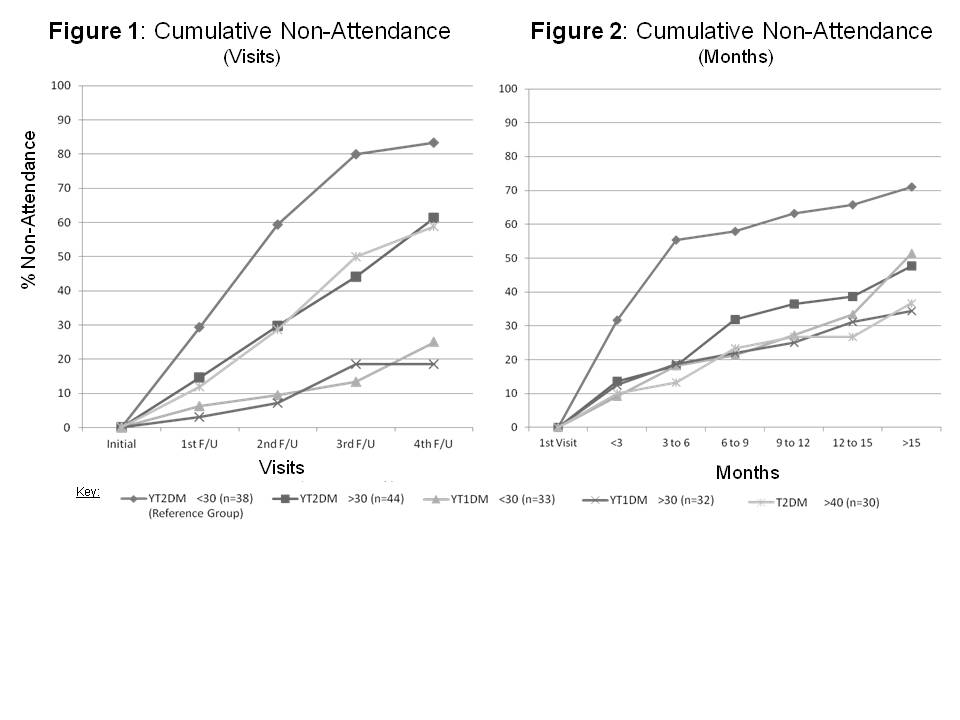Poster Presentation Australian Diabetes Society and the Australian Diabetes Educators Association Annual Scientific Meeting 2016
Young onset type 2 diabetes: Out of Touch and Out of Time (#252)
The relative morbidity and mortality of people with type 2 diabetes with onset between 15-30 years of age (YT2DM) is high. Early metabolic and CVD risk factor control is important, however adherence to treatment and follow-up of these individuals is thought to be poor, although evidence for this is limited. The electronic records of five groups were compared to assess non-attendance rates: YT2DM with first presentation to clinic at age <30yr (YT2DM<30 n=38), presentation at age >30yr (YT2DM>30 n=44); YT1DM with first presentation at <30yr (YT1DM<30 n=33), presentation at age >30yr (YT1DM>30 n= 32) and T2DM age of onset >40yr (n=30). The clinical factors that affect attendance were determined by logistic regression. A questionnaire was also administered to 28 YT2DM of any age to determine their preferred format of medical follow-up.
The cumulative non-attendance rate was higher in YT2DM<30 (p<0.05 vs age matched YT1DM<30 at 1st follow-up visit, p<0.05 vs all groups at subsequent visits). This was irrespective of whether results were analysed according to visit number or time since initial presentation (Figures 1 and 2). Logistic regression of the total cohort revealed YT2DM<30 as the only significant determinant of non-attendance, while clinical factors such as HbA1c, BMI, gender, ethnicity and socioeconomic status were not significant. Amongst the YT2DM<30, those with perfect attendance are more likely to have an HbA1c <6.5% (6/10) than non-attendees (2/28) (p<0.0005), with corresponding mean HbA1c of 8.4+3.4% and 10.3+2.4%, respectively. YT2DM of any age ranked face-to-face consultation over cyber methods (93%) as their preferred format for follow-up.
We conclude that undefined factors lead to poor clinic attendance of YT2DM<30 but attendance improves with age. Strategies are needed to ensure minimum acceptable care is delivered to YT2DM while they are out of touch and before we are out of time to prevent diabetes complications.
